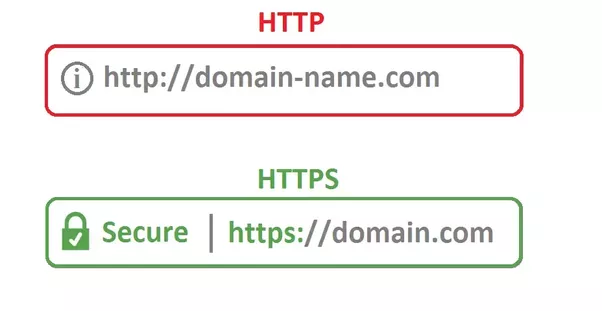Nowadays, browsing and shopping online is easier than before, few clicks, adding the right products and click to buy. This can be good and bad at the same time. One of the main concerns is security and that is where we need to be more aware and educate ourselves in order to avoid any security holes for scammers.
In this article we are going to introduce 4 different online shopping tips to prevent scammers from accessing your personal details.
Steps to stop scammers from accessing your personal details:
- Check if the site you are visiting is secured!
Next time when you visit a website make sure you check the address bar on the upper left side of the web page and check what it says, is it HTTP or HTTPS?
Try NOT to share your personal details if the URL is not a secured one (HTTP) at any cost.
HTTPS means that all your details including: (Username, Password and Credit Card details) will be encrypted and protected from any malicious parties.
Unfortunately, many phishing sites can look safe simply because they use HTTPS. In this case, your information will still be encoded, but it doesn’t matter if you’re presenting it to a phishing or scam site that happens to use HTTPS. Your data is falling into the wrong hands regardless. So, in addition to checking for HTTPS, you should see if the company name is included in the URL. Not all sites use the type of technology that results in their verified identity information being displayed in the address bar, so check your gut. If something seems “off,” leave the site and stop giving away more details.
- Is it a reliable website?
Before you decide to buy stuff from a website try to do a background check on them. Simply try Google the brand and the website and look for reviews. Also, you can review sites from genuine websites such as Better Business Bureau. You may need to ask yourself few questions:
- Do your friends also buy from this site?
- What was their experience?
- Have they ever had any bad experiences?
- Is the offer too good to be genuine?
Some of the websites sponsor offers that are just too good to be genuine. As an example, if you are looking for a £1000-£1300 priced laptop and on a website, you find out they are selling it for £300-£400, that is a too good to be genuine offer. Walk away and don’t trust them.
- Are the contact details on the website genuine?
You might want to check the contact details of the site you are shopping on. As a rule of thumb, almost all businesses have their contact details—particularly their e-mail address, address, and phone number—on the “Contact” page on their site. You can use that information to confirm whether the retail store is genuine or fake.
How? Well, you don’t want to drive miles away to confirm their office address, but you can easily look up their phone number in the reverse phone lookup directory to identify their location, ascertain the name of number owner, and compare the information you’ve found with what you see on their contact page.
WHAT TO DO IF YOU’VE BEEN THE VICTIM OF A SCAM
- Report it to your bank or credit card company immediately
- File a complaint (if you purchased it from a marketplace)
- Get your money back (try contacting your PayPal)
- File a Police report





